Arts & Entertainment
Delta Magazine: 25+ Most Influential Deltans in American Pop Culture
 Delta Magazine has compiled a list of influencers — the history makers, the tastemakers and the movers and shakers out in the world as we know it shaping the way we think, what we see and what we talk about collectively as a nation. Take note: the breadth of these influences and the everlasting effects will blow your mind.
Delta Magazine has compiled a list of influencers — the history makers, the tastemakers and the movers and shakers out in the world as we know it shaping the way we think, what we see and what we talk about collectively as a nation. Take note: the breadth of these influences and the everlasting effects will blow your mind.
By Melissa Townsend, Addy McDaniel and Noel Workman with Luther Brown, Roger Stolle and Mark H. Stowers
This story was republished with permission of Delta Magazine
1. Robert Johnson (1911-1938)
The Man, The Myth

Elta Haze Corporation All Rights Reserved. Used By Permission
Has there ever been a bluesman more controversial and inspiring than Robert Leroy Johnson of Hazelhurst, Mississippi? The questions keep his name in the headlines. Did he really sell his soul to the Devil at The Crossroads? If so, where? And how did he die? (His running-buddy Honeyboy Edwards claimed it was a jealous man and some poisoned whiskey. The back of the death certificate theorized disease. And the latest book on the subject suggests bad moonshine.) In which of three possible cemeteries is his body buried? How many images exist of the enigmatic musician? And why have so many claimed to have “real” photos? Seventy-eight years, three headstones and multiple crossroads later, his legend still draws tourists to the Mississippi Delta from around the world every day—not to mention rock stars from Robert Plant to Ozzie Osbourne. Still, none of the controversies would matter if his musical talent and legacy didn’t back it all up. Simply put, Johnson was the Jimi Hendrix of his generation.
 He took what came before, made it something new, and we’re still trying to figure it out. For music fans and musicians in search of both story and inspiration, stops at his “graves” near Greenwood (especially the third, most likely, site that includes an official Mississippi Blues Trail marker) and the ceremonial (though definitely not definitive) “Crossroads” marker in Clarksdale are essential stops. – Roger Stolle
He took what came before, made it something new, and we’re still trying to figure it out. For music fans and musicians in search of both story and inspiration, stops at his “graves” near Greenwood (especially the third, most likely, site that includes an official Mississippi Blues Trail marker) and the ceremonial (though definitely not definitive) “Crossroads” marker in Clarksdale are essential stops. – Roger Stolle
2. Jim Henson (1936-1990)
Creator of the World’s Most Famous Frog
 If you’re under 50, it’s probably hard to imagine television and movies before the Muppets. Many are still surprised that the inspiration for this life-shaping collection of puppets came from the Mississippi Delta. Greenville born Jim Henson spent his childhood on the banks of Deer Creek near his Stoneville home. Kermit, the original Muppet, sprang from Henson’s childhood and memories of playing along nearby Deer Creek with childhood friend T. K. (Theodore Kermit) Scott, the inspiration for the frog’s name. He first garnered fame in the 1970s when he joined Sesame Street, and helped develop characters for the series. He also appeared in the sketch comedy show Saturday Night Live. Henson won fame for his creations, particularly Kermit the Frog, Miss Piggy, Rowlf the Dog, and Ernie, and was involved with Sesame Street for more than 20 years. Puppeteer, artist, cartoonist, inventor, screenwriter, songwriter, musician, actor, film director, and producer who changed the way children learned and created some of the most unforgettable characters in pop culture. – Noel Workman
If you’re under 50, it’s probably hard to imagine television and movies before the Muppets. Many are still surprised that the inspiration for this life-shaping collection of puppets came from the Mississippi Delta. Greenville born Jim Henson spent his childhood on the banks of Deer Creek near his Stoneville home. Kermit, the original Muppet, sprang from Henson’s childhood and memories of playing along nearby Deer Creek with childhood friend T. K. (Theodore Kermit) Scott, the inspiration for the frog’s name. He first garnered fame in the 1970s when he joined Sesame Street, and helped develop characters for the series. He also appeared in the sketch comedy show Saturday Night Live. Henson won fame for his creations, particularly Kermit the Frog, Miss Piggy, Rowlf the Dog, and Ernie, and was involved with Sesame Street for more than 20 years. Puppeteer, artist, cartoonist, inventor, screenwriter, songwriter, musician, actor, film director, and producer who changed the way children learned and created some of the most unforgettable characters in pop culture. – Noel Workman
3. Archie Manning
America’s Football Family

“People ask me if I knew all this would happen…The short answer would be, Of course not. As proud as I am, I didn’t know. And I wouldn’t have dared to dream it. But I do know this. It wasn’t a fluke.” – Archie Manning, Manning: A Father, His Sons and a Football Legacy
 The flat land of Drew’s athletic fields forged a living legend in Archie Manning. The three-sport phenom would go onto Rebel glory, marry the homecoming queen and produce three SEC football scholarshipped sons. Two would take their dad’s DNA and upbringing and spin NFL Super Bowl gold while a third would make his mark in the financial and entertainment world. His NFL days with the New Orleans Saints were marred with losing records and plenty of blooper reel material. But the humble Rebel kept taking snaps—and hits—and represented his home state (Mississippi) and adopted state (Louisiana) to the best of his ability. The hometown hero never got a ring, but his passion for the game and desire to be the best husband and dad gave him immeasurable rewards to reap off the field. Sons Cooper, Peyton and Eli as well as their mom, Olivia, know they’ve got an MVP and Hall of Famer that they wouldn’t trade for anything. In the business world, Manning has put his stamp on successful companies and he’s even helped provide stable success at his alma mater, vetting and recruiting coaches. Super Bowl success may now run in the family, but it’s all rooted in the Mississippi Delta. One would be hard-pressed to find a sports fan who doesn’t know of the Manning legacy. – Mark H. Stowers
The flat land of Drew’s athletic fields forged a living legend in Archie Manning. The three-sport phenom would go onto Rebel glory, marry the homecoming queen and produce three SEC football scholarshipped sons. Two would take their dad’s DNA and upbringing and spin NFL Super Bowl gold while a third would make his mark in the financial and entertainment world. His NFL days with the New Orleans Saints were marred with losing records and plenty of blooper reel material. But the humble Rebel kept taking snaps—and hits—and represented his home state (Mississippi) and adopted state (Louisiana) to the best of his ability. The hometown hero never got a ring, but his passion for the game and desire to be the best husband and dad gave him immeasurable rewards to reap off the field. Sons Cooper, Peyton and Eli as well as their mom, Olivia, know they’ve got an MVP and Hall of Famer that they wouldn’t trade for anything. In the business world, Manning has put his stamp on successful companies and he’s even helped provide stable success at his alma mater, vetting and recruiting coaches. Super Bowl success may now run in the family, but it’s all rooted in the Mississippi Delta. One would be hard-pressed to find a sports fan who doesn’t know of the Manning legacy. – Mark H. Stowers
4. B.B. King (1925-2015)
Ambassador of The Blues

Barry Brecheisen Photography/Courtesy Of B.B. King Museum
Simply put, Riley “B.B.” King was the last universally-known bluesman the world will ever know. B.B. King or simply “B.B.”—no blues name will ever be as instantly recognized by kids and grandmas, kings and queens, presidents and rock stars. Period. He was born just east of Indianola, Mississippi, because he really couldn’t have come from anywhere other than the Delta and sounded like he did. Even after his blues went uptown—adding horns and enough band members to fill a bus—his music still “felt” like his native land. It was still connected to the cotton fields, church houses and juke joints he grew up in as a young man. It was fitting, then, that 89 years after his arrival on planet earth, his final request brought him back home to a small plot next to the world-class museum that bears his name, the B.B. King Museum and Delta Interpretive Center in Indianola. In case there is any doubt of his influence on rockers, after King’s passing last year, Rolling Stone magazine headlined an article: “10 Legendary Acts that Wouldn’t Exist without B.B. King.” The list included Jimi Hendrix, Cream, Santana, Allman Brothers…It’s a list that could go on and on, and probably will. Forever. – Roger Stolle

Getty Images
5. Joseph Biedenharn (1864-1952)
Brilliant Bottler of Americana
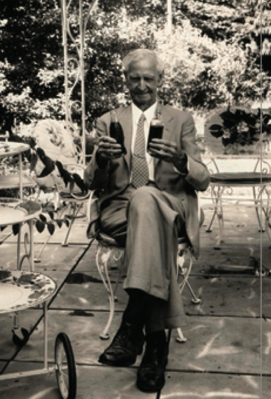 Sooner or later, Coca-Cola would have been the world-wide symbol of classic Americana, but Vicksburg’s Joseph Biedenharn sure gave it a jump start. Like all other soda fountain sellers in the 1890s, he created the fountain drink with a squirt of Coke’s super-secret syrup plus a lot of carbonated water, a system used for rose, claret, grape, peach, orgeat, sasaparilla and peppermint. Biedenharn’s primary job was running a Vicksburg candy company, but wanted to supply out-of-town customers. In 1894 he sent one of the first cases of “bottled” Coca-Cola to Asa Candler in Atlanta, who at that time had complete control of Coca-Cola. Candler commented, “it was fine.” From that, the Biedenharn family’s interest in Coca-Cola grew to hold the bottling rights in Mississippi, Louisiana, Texas and Arkansas. Thanks to Joseph, the premier symbol of American culture was available to everyone who had a nickel—plus a two-cent deposit on the bottle. – Noel Workman
Sooner or later, Coca-Cola would have been the world-wide symbol of classic Americana, but Vicksburg’s Joseph Biedenharn sure gave it a jump start. Like all other soda fountain sellers in the 1890s, he created the fountain drink with a squirt of Coke’s super-secret syrup plus a lot of carbonated water, a system used for rose, claret, grape, peach, orgeat, sasaparilla and peppermint. Biedenharn’s primary job was running a Vicksburg candy company, but wanted to supply out-of-town customers. In 1894 he sent one of the first cases of “bottled” Coca-Cola to Asa Candler in Atlanta, who at that time had complete control of Coca-Cola. Candler commented, “it was fine.” From that, the Biedenharn family’s interest in Coca-Cola grew to hold the bottling rights in Mississippi, Louisiana, Texas and Arkansas. Thanks to Joseph, the premier symbol of American culture was available to everyone who had a nickel—plus a two-cent deposit on the bottle. – Noel Workman
6. Holt Collier (1846-1952)
The Legendary Bear Hunter and his Boon
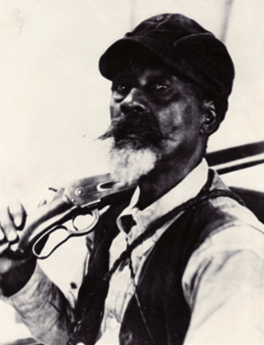
Willa Johnson
What do Winnie the Pooh, political satire and the Mississippi Delta have in common? Holt Collier, of course, the famous Delta bear hunter whose legendary hunt with President Theodore Roosevelt resulted in the beginning of an industry that has produced untold numbers of soft bear toys. The name teddy bears originated from the 1902 Delta hunting trip to which Roosevelt was invited. Most of his fellow hunters had already killed an animal when Collier, the Delta’s legendary bear hunter, cornered, clubbed, and tied a bear to a tree for the President to shoot. The President refused to shoot the bear, deeming it unsportsmanlike. His decision famously became the topic of a Washington Post political cartoon. The President may have hated the nickname Teddy, but he permitted a toy maker to use his name. “Teddy’s bears” were an immediate success and forever became an iconic children’s toy. – Noel Workman
7. Morgan Freeman
The Voice, The Face, the Living Legend
 When Hollywood needed to put a voice and face on God, they came to Charleston, Mississippi, and asked for Morgan Freeman. Certainly his talent is on loan from the Big Man himself and his body of work has certainly been of biblical proportions. In the 1970s he taught us how to read on “Electric Company” on PBS and eventually found his way to the big screen where his talent showered the world with dramatic roles, though he also nailed characters that instantly tickled our funny bone with his comedic skills. His working buddies have included Paul Newman, Batman and Miss Daisy as every role he takes seems to spring from his Delta upbringing. His trophy collection includes a Golden Globe an Oscar and he’s continually nominated for each. Even with all of that Hollywood power and glory, the man stays grounded in the fertile Delta soil and even creates much of the digital voice over work from a North Mississippi studio built just for that. His “Lucius Fox” character creates Batman “toys” on the big screen but in real life, Freeman has used his Rock River Foundation to raise money for Hurricane Katrina victims and much more. He’s partnered with Clarksdale mayor and friend Bill Luckett to bring needed revitalization to the North Delta community through his Ground Zero Blues Club. His car wreck in Mississippi made international headlines a few years back, but it hasn’t slowed him down too much. His mocking narration of a Justin Bieber’s “Love Yourself” garnered millions of YouTube hits, originally published by Vanity Fair, his ubiquitous voice still heard in Visa commercials and other narrations. However controversial, when Morgan Freeman speaks, we hear about it. But “Red” learned long before he found success in life and before Dufresne put so aptly in words that he should “get busy living, or get busy dying.” – Mark H. Stowers
When Hollywood needed to put a voice and face on God, they came to Charleston, Mississippi, and asked for Morgan Freeman. Certainly his talent is on loan from the Big Man himself and his body of work has certainly been of biblical proportions. In the 1970s he taught us how to read on “Electric Company” on PBS and eventually found his way to the big screen where his talent showered the world with dramatic roles, though he also nailed characters that instantly tickled our funny bone with his comedic skills. His working buddies have included Paul Newman, Batman and Miss Daisy as every role he takes seems to spring from his Delta upbringing. His trophy collection includes a Golden Globe an Oscar and he’s continually nominated for each. Even with all of that Hollywood power and glory, the man stays grounded in the fertile Delta soil and even creates much of the digital voice over work from a North Mississippi studio built just for that. His “Lucius Fox” character creates Batman “toys” on the big screen but in real life, Freeman has used his Rock River Foundation to raise money for Hurricane Katrina victims and much more. He’s partnered with Clarksdale mayor and friend Bill Luckett to bring needed revitalization to the North Delta community through his Ground Zero Blues Club. His car wreck in Mississippi made international headlines a few years back, but it hasn’t slowed him down too much. His mocking narration of a Justin Bieber’s “Love Yourself” garnered millions of YouTube hits, originally published by Vanity Fair, his ubiquitous voice still heard in Visa commercials and other narrations. However controversial, when Morgan Freeman speaks, we hear about it. But “Red” learned long before he found success in life and before Dufresne put so aptly in words that he should “get busy living, or get busy dying.” – Mark H. Stowers
8. Craig Claiborne (1920-2000)
King of the Culinary Arts
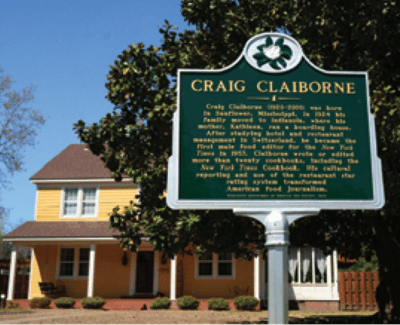 “Foodies now have more celebrity chefs to worship than spatulas, yet even the chefs themselves probably do not realize the debt they owe to Craig Claiborne (1920-2000),” his niece Marion Barnwell wrote in Delta Magazine’s 2009 tribute. “In his time he caused a food revolution.” Introducing the star-rating system, The New York Times restaurant critic could make or break a restaurant, and became a favorite figure in the New Yorker cartoons. The New York Times published 20 of his cookbooks, the first selling more than three million copies. When the Sunflower-born, Indianola reared Claiborne was asked by a Chicago reporter to name the best cook in the South, he famously answered, “My mother.” A two- page spread followed in a 1948 issue of Liberty magazine of Miss Kathleen “holding court” in her boarding house, where servants doted on the young Claiborne and he had his first taste of culinary artistry. Later, his own lavish dinners would make headlines and he would become an American culinary icon. – Delta Magazine
“Foodies now have more celebrity chefs to worship than spatulas, yet even the chefs themselves probably do not realize the debt they owe to Craig Claiborne (1920-2000),” his niece Marion Barnwell wrote in Delta Magazine’s 2009 tribute. “In his time he caused a food revolution.” Introducing the star-rating system, The New York Times restaurant critic could make or break a restaurant, and became a favorite figure in the New Yorker cartoons. The New York Times published 20 of his cookbooks, the first selling more than three million copies. When the Sunflower-born, Indianola reared Claiborne was asked by a Chicago reporter to name the best cook in the South, he famously answered, “My mother.” A two- page spread followed in a 1948 issue of Liberty magazine of Miss Kathleen “holding court” in her boarding house, where servants doted on the young Claiborne and he had his first taste of culinary artistry. Later, his own lavish dinners would make headlines and he would become an American culinary icon. – Delta Magazine
9. Tennessee Williams (1911-1983)
That Baby Doll Man and Broadway
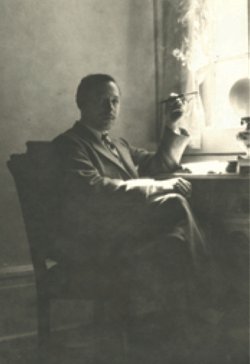 Cat on a Hot Tin Roof and Summer and Smoke didn’t just happen. They were Tennessee Williams’ up close, painful observations of life growing up in the Mississippi Delta. Set on a plantation, Cat examined the relationships between Big Daddy, his son Brick and Maggie, the “Cat,” All were thinly veiled Deltans, revealed to the world through the playwright’s amazing and tortured theatrical skills. And his Summer and Smoke includes references to Moon Lake Casino, a far cry from today’s gamblers’ magnets. As a boy Williams was dazzled by the lavish entertainments of Clarksdale’s Blanche and J.W. Cutrer. The playwright even used the Cutrer name in The Glass Menagerie and A Streetcar Named Desire. Williams may have been born in Columbus, but spent his early years the rectory of Clarksdale’s St. George Episcopal Church in Clarksdale, home of his grandfather. Those years helped shape the most influential American playwright of the 20th century. – Noel Workman
Cat on a Hot Tin Roof and Summer and Smoke didn’t just happen. They were Tennessee Williams’ up close, painful observations of life growing up in the Mississippi Delta. Set on a plantation, Cat examined the relationships between Big Daddy, his son Brick and Maggie, the “Cat,” All were thinly veiled Deltans, revealed to the world through the playwright’s amazing and tortured theatrical skills. And his Summer and Smoke includes references to Moon Lake Casino, a far cry from today’s gamblers’ magnets. As a boy Williams was dazzled by the lavish entertainments of Clarksdale’s Blanche and J.W. Cutrer. The playwright even used the Cutrer name in The Glass Menagerie and A Streetcar Named Desire. Williams may have been born in Columbus, but spent his early years the rectory of Clarksdale’s St. George Episcopal Church in Clarksdale, home of his grandfather. Those years helped shape the most influential American playwright of the 20th century. – Noel Workman
10. Muddy Waters (1913 or 1915-1983)
Still Got His Mojo Working’
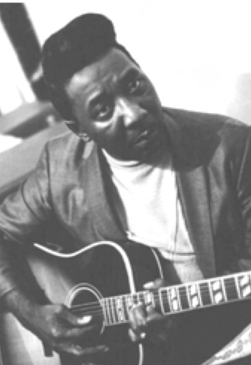
Waters: Delta Haze Corporation All Rights Reserved. Used By Permission
On one of the two markers that sits out on Stovall Plantation where McKinley “Muddy Waters” Morganfield grew up, no less than god (lowercase “g”) speaks volumes in one sentence. At the former home site on the outskirts of Clarksdale, British blues-rocker Eric Clapton declares, “Muddy Waters’ music changed my life, and whether you know it or not, and like it or not, it probably changed yours, too.” The Rolling Stones (the band) and Rolling Stone (the magazine) apparently agree. Both named themselves after one of his songs. Beyond the Muddy Waters importance to the Rock and Roll Hall of Fame and GRAMMY set, there is also the bluesman’s amazing and lasting influence on blues music itself. From the 1950s onward, he was a household name in blues circles with a veritable who’s who of “Chicago blues” greats flowing through this band, including Jimmie Rodgers, Otis Spann, Willie Dixon, James Cotton, Hubert Sumlin, Big Walter Horton, Pinetop Perkins and others—also born in Mississippi. More than three decades after his death, his hits are still played weekly at blues bars and rock clubs around the globe. Next time you hear the ubiquitous “Got My Mojo Workin’,” tip your hat to Mr. Muddy and the Great State of Mississippi. – Roger Stolle

“When I first heard The Best of Muddy Waters, it was the most powerful music I’d ever heard, the most expressive. I’d listed to Mozart, I’d listened to Beethoven. This is on par with the best music in the world.”
– Keith Richards, “Keith Richards: Under the Influence”
11, 12 Larry Gordon & Chuck Gordon
Hollywood Heavyweights
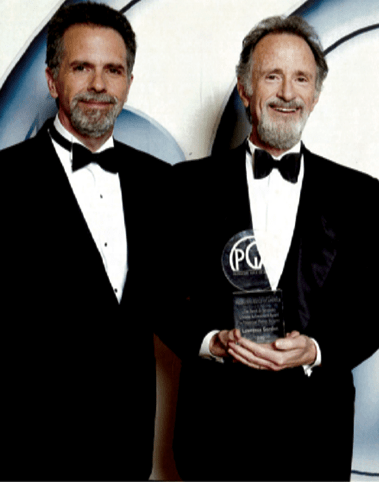
“If you build it, he will come.” – “Field of Dreams”
Larry and Chuck. Chuck and Larry. Belzonians love their native son brothers, the Gordon brothers, whose executive and producer credits in Hollywood (Lawrence Gordon and Charles Gordon) include blockbusters such as 1987’s “Predator,” 1988’s “Die Hard” and 1989’s “Field of Dreams.” Larry was president of 20th Century Fox and later formed his own entertainment company with his brother, Chuck. Their filmographies take moviegoers through decades of memorable flicks. When these two Californians need to get a fill of home, however (or rather of Winkie Allen’s caramel cake), Larry especially may jet into town without much notice or fanfare for a slice of both. Chuck once challenged me as DELTA Magazine editor to track down the recipe for the old Pig Stand barbecue, in hopes of surprising his brother with pulled pork sandwiches and ribs. “He’d think he’d died and gone to heaven!” In that exchange, Chuck shared, “I have so many fond memories of Belzoni and constantly give it and its lore and colorful characters credit for whatever success I’ve had in this business. Larry and I are so lucky to have grown up there.” – Melissa Townsend
13. William Alexander Percy (1885-1942)
The Greenville Galvanizer
 William Alexander Percy, a Greenville native who was seldom seen outside of Tralake plantation, provided the hothouse that produced a number of authors who writings helped explained the Delta to the world. Lanterns on the Levee, his 1941 bestselling autobiography, helped explain the Mississippi Delta of a century ago to the world. His leadership helped bring Hodding Carter, who created the Delta Democrat-Times, and helped Carter explain the Delta to a changing Mid-century America. Percy’s nephew Walker Percy explained the vagaries of the human heart to the world through his fiction. Walker’s childhood friend Shelby Foote helped explain the Civil War to Americans no longer interested in that conflict. And Will Percy’s sponsorship encouraged Greenville’s every growing collection of published authors: Hodding Carter III, his son W. Hodding Carter, Ellen Douglas, Bern Keating, Charles Bell, Gayden Metcalfe, Julia Reed. A generation ago, Greenville was famous for having “more published authors per capita than any other city in the nation.” Will Percy was the example and made writing an honorable, attainable job. – Noel Workman
William Alexander Percy, a Greenville native who was seldom seen outside of Tralake plantation, provided the hothouse that produced a number of authors who writings helped explained the Delta to the world. Lanterns on the Levee, his 1941 bestselling autobiography, helped explain the Mississippi Delta of a century ago to the world. His leadership helped bring Hodding Carter, who created the Delta Democrat-Times, and helped Carter explain the Delta to a changing Mid-century America. Percy’s nephew Walker Percy explained the vagaries of the human heart to the world through his fiction. Walker’s childhood friend Shelby Foote helped explain the Civil War to Americans no longer interested in that conflict. And Will Percy’s sponsorship encouraged Greenville’s every growing collection of published authors: Hodding Carter III, his son W. Hodding Carter, Ellen Douglas, Bern Keating, Charles Bell, Gayden Metcalfe, Julia Reed. A generation ago, Greenville was famous for having “more published authors per capita than any other city in the nation.” Will Percy was the example and made writing an honorable, attainable job. – Noel Workman
14. Willie Morris (1934-1999)
The Giver of Literary Gifts
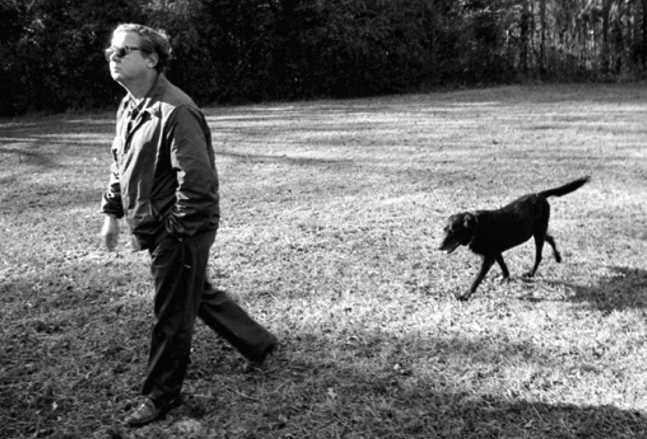 We all loved Willie Morris, our beloved Mississippi author. He started shaping our imagination in the fifth grade, when teachers read Good Ole Boy: A Delta Boyhood aloud in classrooms. What child growing up in the Mississippi Delta would ever forget tales of the infamous Witch of Yazoo—and didn’t shiver every time the family traveled old 49 to and from Jackson at the sight of hills and kudzu? The ‘good ole boy’ from wrote about friendships, but the one he shared with his dog Skip would make the Mississippian a part of
We all loved Willie Morris, our beloved Mississippi author. He started shaping our imagination in the fifth grade, when teachers read Good Ole Boy: A Delta Boyhood aloud in classrooms. What child growing up in the Mississippi Delta would ever forget tales of the infamous Witch of Yazoo—and didn’t shiver every time the family traveled old 49 to and from Jackson at the sight of hills and kudzu? The ‘good ole boy’ from wrote about friendships, but the one he shared with his dog Skip would make the Mississippian a part of 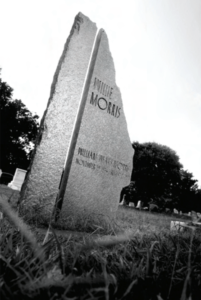 American film history, too. Willie died (too young) just before the major motion picture “My Dog Skip” debuted, starring Frankie Muniz, Diane Lane, Luke Wilson and Kevin Bacon. As a nation in the theatres, we laughed and we cried. Back home in Mississippi, we still read Willie stories and we still tell Willie stories. Conversations with Willie at a country club party, his practical jokes, the index cards to which he jotted down ideas and memories, his drink of choice at The Gin in Oxford, his love of Doe’s Eat Place, his booth and dish of choice at Lusco’s. Of course, we quote Willie too—in our own writings, on Twitter and instagram posts and, as it turns out, in that now ubiquitous Faulkner “quote.” The source of “To understand the world, you must first understand a place like Mississippi,” as best as any researcher can find, is Willie paraphrasing Faulkner in a 1996 New York Times book review. Yep, Willie’s mark on our culture and society will never wane. He touches our souls. As his epitaph reads, “even across the divide of death, friendship remains an echo forever in the heart.” – Melissa Townsend
American film history, too. Willie died (too young) just before the major motion picture “My Dog Skip” debuted, starring Frankie Muniz, Diane Lane, Luke Wilson and Kevin Bacon. As a nation in the theatres, we laughed and we cried. Back home in Mississippi, we still read Willie stories and we still tell Willie stories. Conversations with Willie at a country club party, his practical jokes, the index cards to which he jotted down ideas and memories, his drink of choice at The Gin in Oxford, his love of Doe’s Eat Place, his booth and dish of choice at Lusco’s. Of course, we quote Willie too—in our own writings, on Twitter and instagram posts and, as it turns out, in that now ubiquitous Faulkner “quote.” The source of “To understand the world, you must first understand a place like Mississippi,” as best as any researcher can find, is Willie paraphrasing Faulkner in a 1996 New York Times book review. Yep, Willie’s mark on our culture and society will never wane. He touches our souls. As his epitaph reads, “even across the divide of death, friendship remains an echo forever in the heart.” – Melissa Townsend
15. Charlie Conerly (1921-1996)
The Father of Football
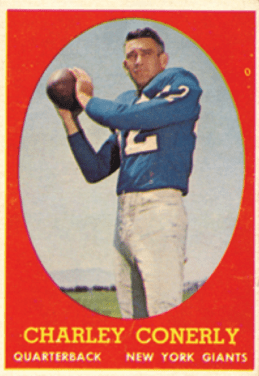 A man’s man football player. The original Marlboro Man wore number 42 and Ole Miss red and blue during his college years. He would don the same colors and number for the fabled New York Giants. The tough quarterback made plenty of Southerners pay allegiance to the team above that played its home games in Yankee Stadium. With his cleats hung up after the 1961 season, he came home to Clarksdale, called an option and sold shoes across the Mississippi Delta through stores that bore his name. Conerly is a member of The College Hall of Fame and Ole Miss Team of the Century and his wife Perian supported him throughout his career while carving her own swath as an author (Backseat Quarterback), columnist and TV appearance on “What’s My Line?” His number has been retired and he held plenty of Giants records and he is reviled in his home state, Conerly may never be enshrined in the NFL Hall of Fame but in the Delta, there’s Charlie and there’s Archie—and that’s one heck of a Delta Hall of Fame. He may have left us in 1996, but the quarterback’s influence cuts deep in the Delta. – Mark H. Stowers
A man’s man football player. The original Marlboro Man wore number 42 and Ole Miss red and blue during his college years. He would don the same colors and number for the fabled New York Giants. The tough quarterback made plenty of Southerners pay allegiance to the team above that played its home games in Yankee Stadium. With his cleats hung up after the 1961 season, he came home to Clarksdale, called an option and sold shoes across the Mississippi Delta through stores that bore his name. Conerly is a member of The College Hall of Fame and Ole Miss Team of the Century and his wife Perian supported him throughout his career while carving her own swath as an author (Backseat Quarterback), columnist and TV appearance on “What’s My Line?” His number has been retired and he held plenty of Giants records and he is reviled in his home state, Conerly may never be enshrined in the NFL Hall of Fame but in the Delta, there’s Charlie and there’s Archie—and that’s one heck of a Delta Hall of Fame. He may have left us in 1996, but the quarterback’s influence cuts deep in the Delta. – Mark H. Stowers
16. Charlaine Harris
Bloody Good Writer
 Vampires, from the Delta? Few could have predicted that Tunica native Charlaine Harris would dominate television’s “True Blood,” a dark fantasy series, based on her Southern vampire mystery novels set in a fictional small town in northwestern Louisiana. “True Blood” premiered on HBO in 2008 and its 80 episodes ran for seven seasons. NBC just picked up the supernatural drama “Midnight, Texas,” based on her three-book series, centering around a remote Texas town where “no one is who they seem.” From werewolves and witches to psychics and hit men, writer Charlaine horrifies us—and we’re so proud. – Noel Workman
Vampires, from the Delta? Few could have predicted that Tunica native Charlaine Harris would dominate television’s “True Blood,” a dark fantasy series, based on her Southern vampire mystery novels set in a fictional small town in northwestern Louisiana. “True Blood” premiered on HBO in 2008 and its 80 episodes ran for seven seasons. NBC just picked up the supernatural drama “Midnight, Texas,” based on her three-book series, centering around a remote Texas town where “no one is who they seem.” From werewolves and witches to psychics and hit men, writer Charlaine horrifies us—and we’re so proud. – Noel Workman
17. Hoda Kotb
The Princess of Pop Culture
 Who doesn’t love Hoda? Americans are on a first-name basis with NBC’s “The Today Show” co-host Hoda Kotb, and guess where she got her big break? Greenville, Mississippi. To this day, Hoda Kotb still credits Stan Sandroni (her “game changer”), WXVT-TV and the Mississippi Delta for literally changing her life and steering her career. Noel Workman interviewed Hoda for DELTA Magazine many years ago and she couldn’t have been kinder or more grateful to the people of the Delta. One of her quotes from that interview about Delta storytellers would end up in The Delta: Landscapes, Legends and Legacies of Mississippi’s Storied Region. We’ll always claim her! Now Hoda has millions of viewers curled up on the couch with coffee, while Hoda and Kathie Lee sip their wine—in their pajamas—on national television. Of course we love her! With the off-the-wall stunts she and Kathie Lee pull, she just may have the coolest job in America. I mean, we go to work humming a new Meghan Trainor song none of your friends have even heard yet because Hoda said it was her fave. Next thing you know, it’s a hit! And how much fun has it been watching Delta girl Elizabeth Heiskell in the NBC kitchen enlightening Americans on Delta hospitality and holding court with Hoda on air? Hoda simply makes mornings, and life, more fun. Cheers! – Melissa Townsend
Who doesn’t love Hoda? Americans are on a first-name basis with NBC’s “The Today Show” co-host Hoda Kotb, and guess where she got her big break? Greenville, Mississippi. To this day, Hoda Kotb still credits Stan Sandroni (her “game changer”), WXVT-TV and the Mississippi Delta for literally changing her life and steering her career. Noel Workman interviewed Hoda for DELTA Magazine many years ago and she couldn’t have been kinder or more grateful to the people of the Delta. One of her quotes from that interview about Delta storytellers would end up in The Delta: Landscapes, Legends and Legacies of Mississippi’s Storied Region. We’ll always claim her! Now Hoda has millions of viewers curled up on the couch with coffee, while Hoda and Kathie Lee sip their wine—in their pajamas—on national television. Of course we love her! With the off-the-wall stunts she and Kathie Lee pull, she just may have the coolest job in America. I mean, we go to work humming a new Meghan Trainor song none of your friends have even heard yet because Hoda said it was her fave. Next thing you know, it’s a hit! And how much fun has it been watching Delta girl Elizabeth Heiskell in the NBC kitchen enlightening Americans on Delta hospitality and holding court with Hoda on air? Hoda simply makes mornings, and life, more fun. Cheers! – Melissa Townsend
18. Bobbie Gentry
The Mississippi Mystery Girl
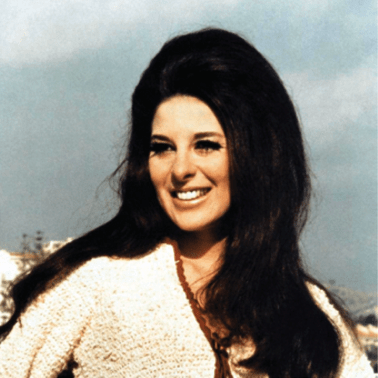 The questions surrounding the mysteries behind the lyrics in Bobbie Gentry’s “Ode to Billie Joe,” the singer’s real name, its spelling, the aloofness and all but disappearance of the musician herself, still linger after all these years—since 1967 to be exact, when her single knocked “All You Need is Love” by the Beatles off the top of the charts. Every third of June, nostalgic music fans feel compelled to post a photo of some barren landscape or cotton field and quote the opening line in the song, “It was the third of June, another sleepy, dusty Delta day…” This year, we finally declared it: June 3rd, National Bobbie Gentry Day! Journalists still try to track her down, but if you want the answers to many of the
The questions surrounding the mysteries behind the lyrics in Bobbie Gentry’s “Ode to Billie Joe,” the singer’s real name, its spelling, the aloofness and all but disappearance of the musician herself, still linger after all these years—since 1967 to be exact, when her single knocked “All You Need is Love” by the Beatles off the top of the charts. Every third of June, nostalgic music fans feel compelled to post a photo of some barren landscape or cotton field and quote the opening line in the song, “It was the third of June, another sleepy, dusty Delta day…” This year, we finally declared it: June 3rd, National Bobbie Gentry Day! Journalists still try to track her down, but if you want the answers to many of the  aforementioned questions, we gave them to you in the cover story by Bill Ellis in the 12th anniversary collector’s edition of DELTA Magazine, the July/August 2015 issue. Oh, yeah, and the bridge! The Tallahatchie Bridge! Which one? Where is it? We addressed that too, yet there’s still debate. As to Bobbie Gentry’s whereabouts, well, we came mighty close on that one, and at press time, decided to respect her life as a private citizen. Her ties to Greenwood have not all been broken, however, which allows us to believe that she read it all, your letters that followed included. To Bobby Lee Streeter, we will always love your music as much as the thrill of the chase. – Delta Magazine
aforementioned questions, we gave them to you in the cover story by Bill Ellis in the 12th anniversary collector’s edition of DELTA Magazine, the July/August 2015 issue. Oh, yeah, and the bridge! The Tallahatchie Bridge! Which one? Where is it? We addressed that too, yet there’s still debate. As to Bobbie Gentry’s whereabouts, well, we came mighty close on that one, and at press time, decided to respect her life as a private citizen. Her ties to Greenwood have not all been broken, however, which allows us to believe that she read it all, your letters that followed included. To Bobby Lee Streeter, we will always love your music as much as the thrill of the chase. – Delta Magazine
19. Newell Turner
The Eyes of American Design
 The last time Newell Turner graced the pages of DELTA Magazine, he was editor-in-chief of House Beautiful, a lofty position in the worlds of media and interior design. Now the Belzoni native oversees three shelter magazines for Hearst Design Group: Elle Décor, House Beautiful, Veranda and Metropolitan Home magazines. As one who brands content for the largest publisher of monthly magazines in the U.S., it’s Newell behind the cool collaborations with designers and posed questions on paint colors and next-big things. Designer and friend Charlotte Moss adds more. “Beyond design what makes Newell the ultimate influencer is his intelligence, his curiosity and his enthusiasm for all the layers in our business, making him a rare bird,” Charlotte says. “He’s also just a heck of a lot of fun to be around!” Newell’s father Tom Turner was mayor of Belzoni for more than two decades, his mother Rose Marie an English teacher. We also asked designer Bunny Williams about Newell’s national impact in the interior design industry. “There is no one who has a better pulse on the interior design community than Newell,” Bunny tells us. “He sees that we are all exposed to the most creative talent in our industry. And no one does it with more charm and style—a product I am sure, of his Delta upbringing!” – Melissa Townsend
The last time Newell Turner graced the pages of DELTA Magazine, he was editor-in-chief of House Beautiful, a lofty position in the worlds of media and interior design. Now the Belzoni native oversees three shelter magazines for Hearst Design Group: Elle Décor, House Beautiful, Veranda and Metropolitan Home magazines. As one who brands content for the largest publisher of monthly magazines in the U.S., it’s Newell behind the cool collaborations with designers and posed questions on paint colors and next-big things. Designer and friend Charlotte Moss adds more. “Beyond design what makes Newell the ultimate influencer is his intelligence, his curiosity and his enthusiasm for all the layers in our business, making him a rare bird,” Charlotte says. “He’s also just a heck of a lot of fun to be around!” Newell’s father Tom Turner was mayor of Belzoni for more than two decades, his mother Rose Marie an English teacher. We also asked designer Bunny Williams about Newell’s national impact in the interior design industry. “There is no one who has a better pulse on the interior design community than Newell,” Bunny tells us. “He sees that we are all exposed to the most creative talent in our industry. And no one does it with more charm and style—a product I am sure, of his Delta upbringing!” – Melissa Townsend
20. Mary Wilson
Supremely a Motown Mama
 “Stop! In the name of love/before you break my heart…” Need we even cue a chorus by The Supremes, from any one of their 12 number-one Motown hits? Diana Ross didn’t do it alone; she had a Mississippi Delta girl, Mary Wilson, by her side. As biographies go, Wilson wasn’t just born in Greenville, but her family migrated north while she was still a toddler, leaving behind relatives she would return to visit time and time again. Playing on the levee as a child to picking up Delta hot tamales on the way back to the airport would be memories she would later recall as vividly as her life as a “Dreamgirl” in subsequent autobiographies. “We became famous at a time when black was not beautiful,” Wilson told Delta Magazine in a 2007 interview. “We were part of that social change.” To have a first hit record at age 19 or 20, and in 1964, was life changing for this performer, but for millions of Americans then as now, Mary Wilson set the stage that talent, beauty and grace know no boundaries. And when there’s a Motown band playing, we’ll never stop singing and snapping in sync on the dance floor. “Think it o’ oh’ vah…” – Delta Magazine
“Stop! In the name of love/before you break my heart…” Need we even cue a chorus by The Supremes, from any one of their 12 number-one Motown hits? Diana Ross didn’t do it alone; she had a Mississippi Delta girl, Mary Wilson, by her side. As biographies go, Wilson wasn’t just born in Greenville, but her family migrated north while she was still a toddler, leaving behind relatives she would return to visit time and time again. Playing on the levee as a child to picking up Delta hot tamales on the way back to the airport would be memories she would later recall as vividly as her life as a “Dreamgirl” in subsequent autobiographies. “We became famous at a time when black was not beautiful,” Wilson told Delta Magazine in a 2007 interview. “We were part of that social change.” To have a first hit record at age 19 or 20, and in 1964, was life changing for this performer, but for millions of Americans then as now, Mary Wilson set the stage that talent, beauty and grace know no boundaries. And when there’s a Motown band playing, we’ll never stop singing and snapping in sync on the dance floor. “Think it o’ oh’ vah…” – Delta Magazine
21. Thomas Harris
Hannibal the Cannibal
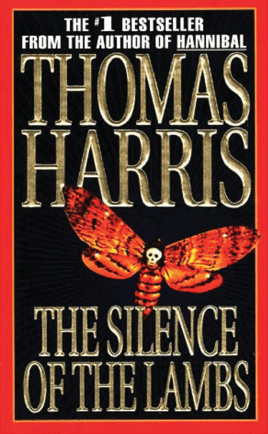 “I do wish we could chat longer, but I’m having an old friend for dinner.” The year was 1991
“I do wish we could chat longer, but I’m having an old friend for dinner.” The year was 1991
when the nation met one of cinema’s most terrifying creations on the big screen. Dr. Hannibal Lecter, the cannibalizing serial killer as famously portrayed by Anthony Hopkins, was created by suspense writer Thomas Harris. The film adaptation of The Silence of the Lambs was one of that year’s most buzzed-about movies, and an Oscar sweep followed, but Harris’s 1988 novel also won its share of accolades for fiction and horror writing. Rarely has Harris granted interviews, even when his own mother, still living and residing in Cleveland at the time, gave Delta Magazine his home phone number. (He politely rejected our request many years ago. Where’s agent Clarice Starling when you need her?) Although his writing is “a kind of torment,” in Stephen King’s words, his literary agent has described Harris as having “a courtliness you associate with the South.” Shiver you may, but the work of this Southern gent in the psychological horror and thriller genres made an indelible, chilling mark on literary and film history. – Melissa Townsend
22. Muriel Wilkins (1936-1990)
The Spiritual Presence
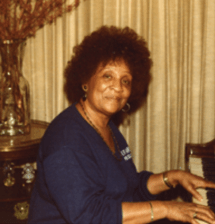 The legacy of Muriel Wilkins would have been limited to the hearts of Tunica County residents and those of us lucky enough to have heard her play piano at the old Hollywood Cafe, private parties or in her church. Just four years before she died, however, her fate in music history was sealed the night she met Marc Cohn visiting from New York at the Robinsonville restaurant. The angelic Delta gospel singer invited Marc to sit with her and echo her singing “Amazing Grace,” whispering words of wisdom to the torn and hindered songwriter. The lyrics to Marc Cohn’s hit song “Walking in Memphis” tell the rest of the incredible, spiritual story. Meeting Muriel in the Mississippi Delta made Cohn, winner of the 1991 Grammy for Best New Artist, a household name. She gave Cohn the most beautiful inspiration for one of the most unforgettable, uplifting pop songs in history. It’s on many a playlist, still reverberating throughout our culture—a song that still makes us choke every time we hear and sing it. – Delta Magazine
The legacy of Muriel Wilkins would have been limited to the hearts of Tunica County residents and those of us lucky enough to have heard her play piano at the old Hollywood Cafe, private parties or in her church. Just four years before she died, however, her fate in music history was sealed the night she met Marc Cohn visiting from New York at the Robinsonville restaurant. The angelic Delta gospel singer invited Marc to sit with her and echo her singing “Amazing Grace,” whispering words of wisdom to the torn and hindered songwriter. The lyrics to Marc Cohn’s hit song “Walking in Memphis” tell the rest of the incredible, spiritual story. Meeting Muriel in the Mississippi Delta made Cohn, winner of the 1991 Grammy for Best New Artist, a household name. She gave Cohn the most beautiful inspiration for one of the most unforgettable, uplifting pop songs in history. It’s on many a playlist, still reverberating throughout our culture—a song that still makes us choke every time we hear and sing it. – Delta Magazine
23. Fannie Lou Hamer (1917-1977)
The Advocate
 The Delta produced many great Civil Rights activists who worked tirelessly as “foot soldiers for freedom,” seeking the right to vote and improve their families’ lives. Among giants like Amzie Moore, Aaron Henry, Charles McLaurin, Sam Block, and many others, one name personifies the honesty, charisma, eloquence and selfless dedication of a true leader: Fannie Lou Hamer. Mrs. Hamer lived her adult life in Ruleville, Mississippi. She did not know that she could register to vote until she was 37, and when she tried to register and was refused, she lost her job as a sharecropper’s wife and was forced to leave her home. Instead of being intimidated she was empowered and dedicated her life to the oppressed. Her deep Christian faith sustained her through threats and a serious beating. She helped found the Mississippi Freedom Democratic Party in 1963 and emotionally addressed the Democratic Convention in 1964. She ran for the Second Congressional District in the same year. Later in life, she turned her attention to human rights and founded Freedom Farm to aid the hungry. She is remembered for her impromptu speeches and her strong singing voice. She is memorialized with a life-sized bronze statue and a Mississippi Freedom Trail marker at her gravesite in Ruleville, on the grounds of the old Freedom Farm. Her headstone bears her signature phrase, “I’m sick and tired of being sick and tired.” – Luther Brown
The Delta produced many great Civil Rights activists who worked tirelessly as “foot soldiers for freedom,” seeking the right to vote and improve their families’ lives. Among giants like Amzie Moore, Aaron Henry, Charles McLaurin, Sam Block, and many others, one name personifies the honesty, charisma, eloquence and selfless dedication of a true leader: Fannie Lou Hamer. Mrs. Hamer lived her adult life in Ruleville, Mississippi. She did not know that she could register to vote until she was 37, and when she tried to register and was refused, she lost her job as a sharecropper’s wife and was forced to leave her home. Instead of being intimidated she was empowered and dedicated her life to the oppressed. Her deep Christian faith sustained her through threats and a serious beating. She helped found the Mississippi Freedom Democratic Party in 1963 and emotionally addressed the Democratic Convention in 1964. She ran for the Second Congressional District in the same year. Later in life, she turned her attention to human rights and founded Freedom Farm to aid the hungry. She is remembered for her impromptu speeches and her strong singing voice. She is memorialized with a life-sized bronze statue and a Mississippi Freedom Trail marker at her gravesite in Ruleville, on the grounds of the old Freedom Farm. Her headstone bears her signature phrase, “I’m sick and tired of being sick and tired.” – Luther Brown
24. Julia Reed
The Delta Storyteller
 Southern cuisine has been a national food trend, as seen in magazines such as Food & Wine and Bon Appétit for years, and on restaurant menus from California to Kalamazoo. Quite frankly, the Yankees, with their less than colorful cultures, are jealous. Luckily we have writer Julia Reed to enlighten Americans (explain?) on Southern food and Southern taste, which includes, of course, Mississippi Delta-style entertaining. Her underlying goal? To show non-Southerners how and “why we do have so much more superior fun.” Her words. Julia is a modern day storyteller, a Delta character to be sure. She’s telling our outlandish Delta stories to a national audience through magazine articles, essays, books and cookbooks. While her web of chefs and designers and writers from New York to New Orleans is wide, her entertaining style always leads her back to the Mississippi Delta. (Who could forget the spread in Vogue of her closet and designer shoe collection, and that was more than 15 years ago!) With her new Southern cookbook (see Food) published by a major New York publishing house, she’s doing just what she told us at a recent book signing. “I’m sharing the great blessing of having grown up in the Delta with people in and outside the place.” – Melissa Townsend
Southern cuisine has been a national food trend, as seen in magazines such as Food & Wine and Bon Appétit for years, and on restaurant menus from California to Kalamazoo. Quite frankly, the Yankees, with their less than colorful cultures, are jealous. Luckily we have writer Julia Reed to enlighten Americans (explain?) on Southern food and Southern taste, which includes, of course, Mississippi Delta-style entertaining. Her underlying goal? To show non-Southerners how and “why we do have so much more superior fun.” Her words. Julia is a modern day storyteller, a Delta character to be sure. She’s telling our outlandish Delta stories to a national audience through magazine articles, essays, books and cookbooks. While her web of chefs and designers and writers from New York to New Orleans is wide, her entertaining style always leads her back to the Mississippi Delta. (Who could forget the spread in Vogue of her closet and designer shoe collection, and that was more than 15 years ago!) With her new Southern cookbook (see Food) published by a major New York publishing house, she’s doing just what she told us at a recent book signing. “I’m sharing the great blessing of having grown up in the Delta with people in and outside the place.” – Melissa Townsend
Pop Culture Catalysts: 3 Unsung Heros
25. Boo’s Literary Coup
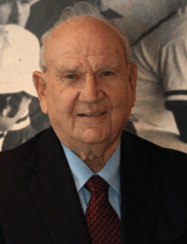 “Thanks to Coach Ferriss,” a young John Grisham hung up his baseball cap and dreams of becoming a professional baseball player when he was cut from the team, and started a new career path. Grisham’s The Firm spent 47 weeks on The New York Times bestseller list, and he’s been batting a thousand ever since. More than 300 million John Grisham books are in print; nine titles have been turned into films. And to think we can owe it all to our beloved Delta State University baseball coach Boo Ferriss, who advised Grisham to “stick to the books.”
“Thanks to Coach Ferriss,” a young John Grisham hung up his baseball cap and dreams of becoming a professional baseball player when he was cut from the team, and started a new career path. Grisham’s The Firm spent 47 weeks on The New York Times bestseller list, and he’s been batting a thousand ever since. More than 300 million John Grisham books are in print; nine titles have been turned into films. And to think we can owe it all to our beloved Delta State University baseball coach Boo Ferriss, who advised Grisham to “stick to the books.”
26. Frankly, My Dear…
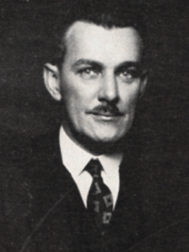 It’s the work of writer Willie Morris that generations of DELTA Magazine readers will always remember, but another Yazoo City boy before Willie’s time can be credited as the impetus for the popularity of one of the most well-known pieces of Southern fiction. Herschel Brickell (1889-1952) was one of the country’s best-known book reviewers and is often credited with launching Margaret Mitchell’s career with his glowing review of Gone with the Wind. Mitchell won a Pulitzer for her only novel and quotes from the 1939 film adaptation are two of the most memorable of all time.
It’s the work of writer Willie Morris that generations of DELTA Magazine readers will always remember, but another Yazoo City boy before Willie’s time can be credited as the impetus for the popularity of one of the most well-known pieces of Southern fiction. Herschel Brickell (1889-1952) was one of the country’s best-known book reviewers and is often credited with launching Margaret Mitchell’s career with his glowing review of Gone with the Wind. Mitchell won a Pulitzer for her only novel and quotes from the 1939 film adaptation are two of the most memorable of all time.
27. Ben and His Editing Pen

The Brodsky Collection
Believing he had written “the damnest best book you’ll look at this year,” William Faulkner’s manuscript of Flags in the Dust was rejected. Shocked and angered, he asked his Greenville friend Ben Wasson, a New York literary agent, to recommend it to his publishers. Eventually, Harcourt accepted it on the condition that Wasson himself cut it at least by a quarter. Wasson labored, Faulkner continued writing, and it was finally published as Sartoris, the first of Faulkner’s tales set in Yoknapatawpha County. According to Myself and the World (University Press of Mississippi), Faulkner had “discovered what would become a signature trademark of his later fiction: the interrelationship of the present with the past.”

Scott Coopwood, publisher of Delta Magazine.
Delta Magazine is considered one of the most unique regional lifestyle publications, which some even call “the most southern magazine on earth.” The Mississippi Delta is known for its literary, musical and culinary heritage, as well as for its legendary entertaining style and social traditions. The bi-monthly Delta Magazine embodies every aspect of the Mississippi Delta with its fresh content, cutting-edge photography and devoted readership. Learn more by visiting deltamagazine.com.
For questions or comments, email hottytoddynews@gmail.com.





























